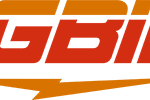As the Independent National Electoral Commission (INEC) gears up for the governorship and state house of assembly elections on March 18, a former INEC Director, Voter Education and Publicity, Oluwole Osaze-Uzzi, says confidence in the electoral body is at an all-time low.
The conduct of the February 25 presidential and National Assembly elections has widely criticized as falling below the expectations of Nigerians and stakeholders at home and abroad.
Osaze-Uzzi, addressed the “furore” over glitches with the Bimodal Voter Accreditation System (BVAS) and the upload of results to the INEC Results Viewing Portal (IReV).
“You could not envisage a situation with the tension of the country. With the uncertainty and all that has happened in the last 10, 12 day, I don’t think INEC could afford doing any wrong again,” he said.
“Things went awry last time around and confidence, I think, is at an all-time low. Some people may begin to get over it, but I think the vast majority of Nigerians are satisfied.”
In his opinion, even the commission is likely dissatisfied with the way things turned out.
According to the former INEC director, the trust the electoral umpire has managed to build over several election cycles has dwindled.
“INEC conducted elections in 1998, 1999 – people just wanted to get rid of the military, it wasn’t perfect but it was acceptable. In 2003, people were not happy. 2007 was the epoch of it all. Trust was next to zero,” he said.
Osaze-Uzzi however added that with the changes in personnel and reforms brought into place, trust began to build up, reaching a crescendo in 2022.
“By the time you brought more technology, by the time you conducted Osun, Edo, Ekiti, Ondo, and then they saw the way technology improved the process, Osun was picture-perfect. People [said], ‘They could really do this.’
“Expectations were now high and people were ready to forgive the sins of the past. I think at that time, INEC became one of the most trusted public institutions,” he said.
Additionally, the former INEC director faulted INEC for its prioritisation of timing above process in its conduct of the presidential elections.
“There was a call to be made: Do you delay things and ensure you follow the process to the letter, even if it means delaying this thing for a week or whatever period of time?
“Or do you save time, save tension, just go ahead and bypass some of the processes laid down in your regulations? I think it took the former. This time around, I think process triumphed over timing,” he said










